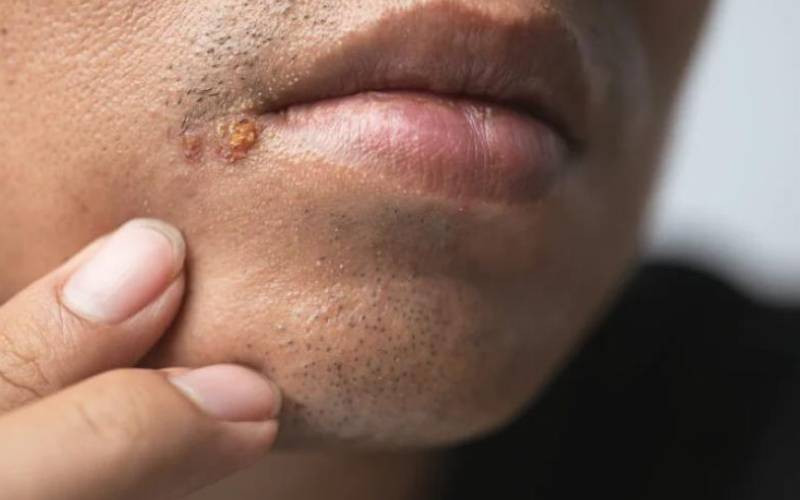
It is advised that every woman prioritises a visit to the gynaecologist at least once a year. And the reason for those visits could be anything from thorough health check, fertility checks or treatment for a niggling issue.
Here are seven things your gynaecologist would mostly likely want you to know:
Your partner’s sperm quality also declines with ageWe have for long known that the biological clock is only a women’s problem. Fertility in women takes a nose dive from the age of 35 and is estimated to be only five per cent by the age of 40.
Recent studies have shown that men also face age-related decline in the quality of their sperm. According to Dr Rajesh, when a male partner is over the age of 45, there is an elevated risk of miscarriage.
“There is enough evidence that shows that not only eggs, but sperm too undergoes genetic damage with advancing age,” he explains. “When ready to have a baby, women and men should aim to be as healthy as possible,” he adds.
The vagina narrows down during menopauseAs a woman grows older, sometimes sex gets more painful. This could be due to increased dryness of the vagina caused by change in hormones but it could also be due to the narrowing of the vaginal canal, which becomes less elastic with time.
Known as vaginal atrophy, the vaginal walls thin, dry up and sometimes get inflamed. This can set in as early as the late 30s, and become worse during menopause.
But, there is a solution. More sex. How? More sex helps the vagina maintain some elasticity. Your doctor can also prescribe some oestrogen cream or lubricants that can make sex more comfortable.

We all understand that fertility does not get better with age. Reproductive complications tend to increase as we get older.
It is of utmost importance to consider this fact when planning to postpone parenthood. Apart from the more popular egg and embryo freezing which are currently available in Kenya, ovarian tissue freezing is offering an emerging technique that is achieved with a low-dose and milder ovarian stimulation and in vitro fertilisation.
According to the Nairobi IVF Centre, ovarian tissue freezing involves removing a small piece of the ovary, slicing it and freezing it. The frozen tissues can then be grafted back into the pelvis.
In around nine months, the grafted ovarian tissues can start to produce hormones. There have been successful natural conception pregnancies after ovarian grafting but further research is being done to optimize safety and success.

Most birth control options work by changing hormone production so that you do not ovulate. However, some of these hormones contribute to your sex drive, including the sex hormone-binding globulin (SHBG).
This hormone reduces the amount of testosterone, but this may work against you in terms of desiring sex, because testosterone is thought to enhance your sex drive.
Studies show that women on birth control have up to four times the normal amount of SHBG in their bodies, meaning less testosterone.
In addition, less oestrogen, which is also reduced by the pill means it may be harder to get wet during sex, which makes it painful and less desirable.
Talk to your gynaecologist about possible birth control alternatives. You can choose non-hormonal contraceptives such as an intrauterine device (IUD) which is sometimes called a coil.

According to the Kenya Laparoscopic Surgery Services, urinary incontinence is a widespread problem affecting almost 25 per cent of women at least one year following childbirth.
There is a wide range of treatment options available to handle that regular accidental urine discharge ranging from pelvic floor rehabilitation and surgery.
Surgery does not need to be invasiveWomen may have surgery on their productive areas depending on the location and severity of the health condition.
Thanks to technology, there are options of less invasive surgeries through laparoscopy. Laparoscopy has less risk of blood loss, scaring and infection when compared to “open” surgery.

Many of us live by the adage, “what you do not know cannot hurt you.” Or, “when you go out looking for trouble, you will find it.”
Well, your reproductive health should not rely on such sayings. Even if you feel okay, purposely have your annual checkup especially if you are having unprotected sex.
Trust me, you will not want to find out 10 years from now that your reproductive tract is wreaking havoc when it may be quite late to avoid serious repercussions. It is paramount to get the right direction with the right timing.
Nancy Nzalambi is a public health research scientist
 The Standard Group Plc is a multi-media organization with investments in media platforms spanning newspaper print
operations, television, radio broadcasting, digital and online services. The Standard Group is recognized as a
leading multi-media house in Kenya with a key influence in matters of national and international interest.
The Standard Group Plc is a multi-media organization with investments in media platforms spanning newspaper print
operations, television, radio broadcasting, digital and online services. The Standard Group is recognized as a
leading multi-media house in Kenya with a key influence in matters of national and international interest.










